When you are starting a business, there are many uncertainties that you need to answer. You may feel a bit overwhelmed. However, one thing is certain that you will need careful planning at this stage of your business. You may have many questions. In the early days of their business venture, most entrepreneurs often ask me for their startup the following main questions as to their accountant. Among many questions, they have quesions about any potential tax relief for startups
-
- Do I need a company?
- How do I register my company?
- How do I inject capital into my business?
- When will I need to prepare the accounts?
- What about the tax of the company?
- What do I need to do if I hire staff?
- Do I send a VAT invoice to my customers?
- Can I prepare my own accounts?
- Do I need an accountant?
- When do I need an accountant?
- I am just starting up. Will I need an accountant now?
- Will I afford an accountant’s fee if I am just starting up?
- I have a minimal budget? Will I afford an accountant?
- Finally, what about taxes? When do I pay them?
On this page, we have compiled carefully selected steps that you should follow.
Prepare your business plan.
-
-
- It is said that if you fail to plan, you are definitely planning to fail. As a serious businessman, you should carefully plan. The idea of your business was conceived in your mind way before you decided to start your business. You might have already written many ideas on a piece of paper. It’s now time to properly organize your thoughts and come up with an actionable plan. Your business plan. Based on this plan, you will be able to devise a future strategy and will be able to take reasonable steps. A well-thought business plan will avoid many surprises along your business journey. You will need to develop a clear plan for your product, the price, your staff, and your business’s place. If you are in doubt, you should ask your accountant to help.
-
Seek finance and arrange to fund
-
-
- One thing is certain that you will need money to start your business. First of all, find out the amount required to be invested in your business. You will need money to buy fixed assets like computers, printers, and other office equipment. Depending on your business’s nature, you may also need vehicles. All such investment is locked into the business for more than 1 year as you may use them for a few years. Then you will need funds for the working capital. This is mainly cash to run business and stock.
- You will need to inject funds into the business. The most common way to fund a company is via share capital. However, it is not advisable to fund all your business needs with the share capital. Typically, the UK companies can be formed with the share capital as low as £1. Any
- Set up and register your business
- As your accountants, we can help you register your startup company with the companies house.
- If you are planning to do your business from home
- If you’re planning to run your business from an office
- Look into these tax reliefs available for your startup business.
- Tax reliefs for
- If you’re planning to hire a staff
- Essential software for your business
- If you provide services
- If you sell goods
-
https://www.bl.uk/business-and-ip-centre/articles/what-is-a-business-plan
SBRR
Home business
https://www.greatbusiness.gov.uk/home-businesses/
Relief and incentives
https://www.greatbusiness.gov.uk/tax-relief-and-incentives-for-businesses-and-investors/
Funding
https://www.greatbusiness.gov.uk/funding-and-support-to-develop-new-ideas/
One more source
https://www.startuploans.co.uk/business-advice/how-to-start-a-business/

